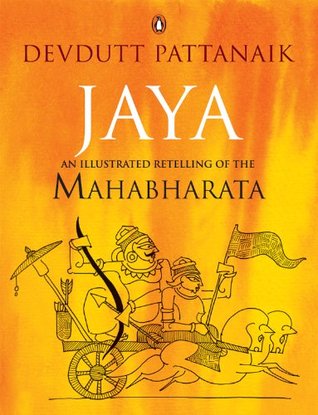More on this book
Community
Kindle Notes & Highlights
Read between
August 30 - October 2, 2017
That war was about dharma. And dharma is not about justice; it is about empathy and wisdom. Dharma is not about defeating others, it is about conquering ourselves. Everybody wins in dharma. When the war at Kuru-kshetra concluded even the Kauravas went to paradise.’
Spirituality earns merit and gives one access to the pleasures of the world, but indulgence in sensual pleasures causes loss of merit. Hence, there is constantly a conflict between the hermit and the nymph.
The Mahabharata is essentially the tale of what follows Devavrata’s vow, what happens when the older generation sacrifices the happiness of the younger generation for its own pleasure.
This world may turn away from God and therefore suffer, as Draupadi inadvertently does, but God will never turn away from the world.
what cannot be understood by the human intellect need not be feared because it ultimately comes from God.
Strength alone is not enough in this world; divine grace is needed.
One day, feeling sorry for being the cause of his family’s downfall, he wailed, ‘Surely there has never been a man who has suffered as much as me.’ Rishi Markandeya, who heard Yudhishtira say this, responded, ‘No. That is not true. There was one called Ram, who suffered much more. You are exiled for thirteen years, he was exiled for fourteen. While you brought this misery upon yourself, he suffered because dharma states a good son must obey his father.’ Glancing towards Draupadi and Bhima, he said, ‘And while your brothers endure this exile because they have little choice, Ram’s brother,
...more
Through the story of Ram, Vyasa is trying to explain that while we believe our problems are the greatest and our misfortunes the worst, there is always someone out there who has suffered more. And just as they survived and triumphed over their suffering, we must too.
confrontation and conflict does not necessarily happen when one is right and the other is wrong; it can happen simply because two people follow different value systems.
(do not aspire for things until you are worthy).
‘Your mind retains memory of all past stimulations—those that evoke fear and those that generate comfort. Your mind also imagines situations that frighten you and comfort you. Goaded by your ego, you suppress memories that cause pain and prefer memories that bring pleasure. Goaded by your ego, you imagine situations that the ego seeks and shuns. Right now, Arjuna, on this battlefield, nothing has happened. But a lot is occurring in your mind—memories resurface as ghosts and imagination descends like a demon. That is why you suffer.
‘Your ego constructs a measuring scale to evaluate a situation. This measuring scale determines your notions of fearful or comforting, painful or pleasurable, right or wrong, appropriate or inappropriate, good or bad. It is informed by the values of the world you live in, but is always filtered by the ego before being accepted.
Only the truly enlightened know the world as it truly is; the rest construct a reality that comforts the ego.
‘Your ego clings to things that grant it maximum comfort. The purpose of life then becomes the pursuit of comfort-generating states, the shunning of fear-generating states. Attainment of desirable states brings joy, failure to do so becomes sorrow. The ego clings tenaciously to things and ideas that validate its existence. The ego does everything in its power to establish and retain a permanent territorial hold over all external states that give it joy.
From this desire to make the world align to the ego’s measuring scale come all pain and suffering and rage.
The night battle where exhausted soldiers have lamps in one hand and weapons in the other is a metaphor for the extent of human rage. When angry, all rules collapse, all good sense vanishes and the beast of vengeance takes over.
Arjuna should not assume that words spoken under stressful situations were real. His brother was just angry and did not mean to insult him or his bow. One should have faith in one’s friends and family and not let one harsh word break the bond of trust.
‘Everybody dies—some suddenly, some slowly, some painfully, some peacefully. No one can escape death. The point is to make the most of life—enjoy it, celebrate it, learn from it, make sense of it, share it with fellow human beings—so that when death finally comes, it will not be such a terrible thing.’
We will all die eventually but this should not stop us from living healthy lives. In the same way, the eventual collapse of an organization should not stop leaders from striving to uphold order.
The Veda says that as long as we do not accept life for what it is, as long as we try to control and change things, there will always be conflict. Conflict ends when we realize that beyond tangible material reality, there is intangible spiritual reality.
If dharma enables us to outgrow the beast in us, then adharma makes us worse than animals. If dharma takes us towards divinity, then adharma fuels the demonic.


